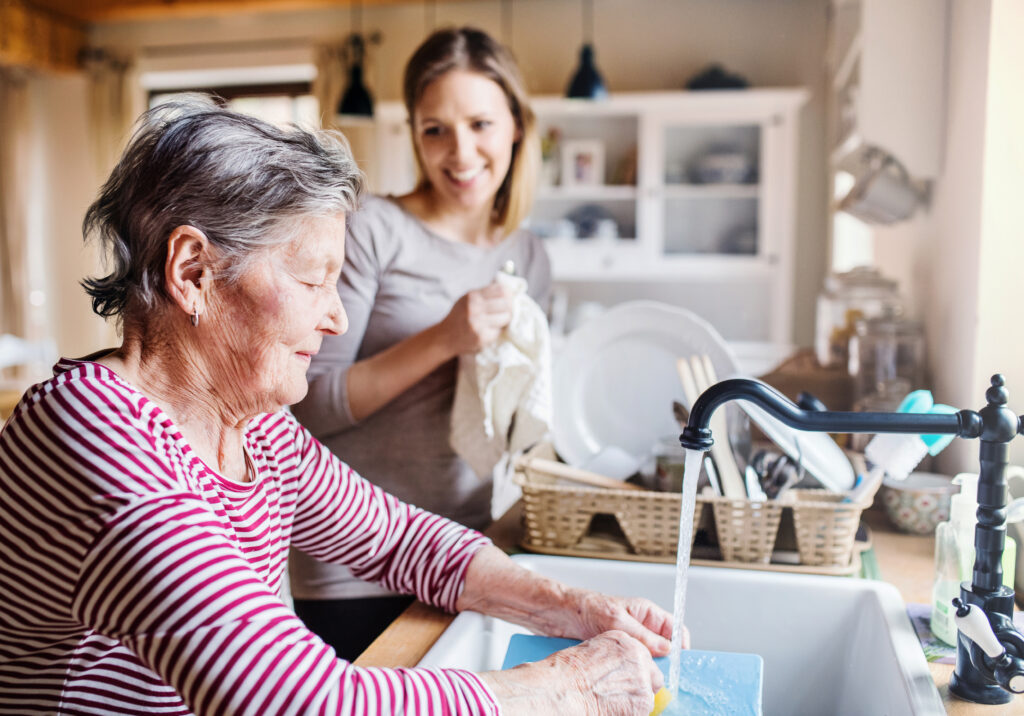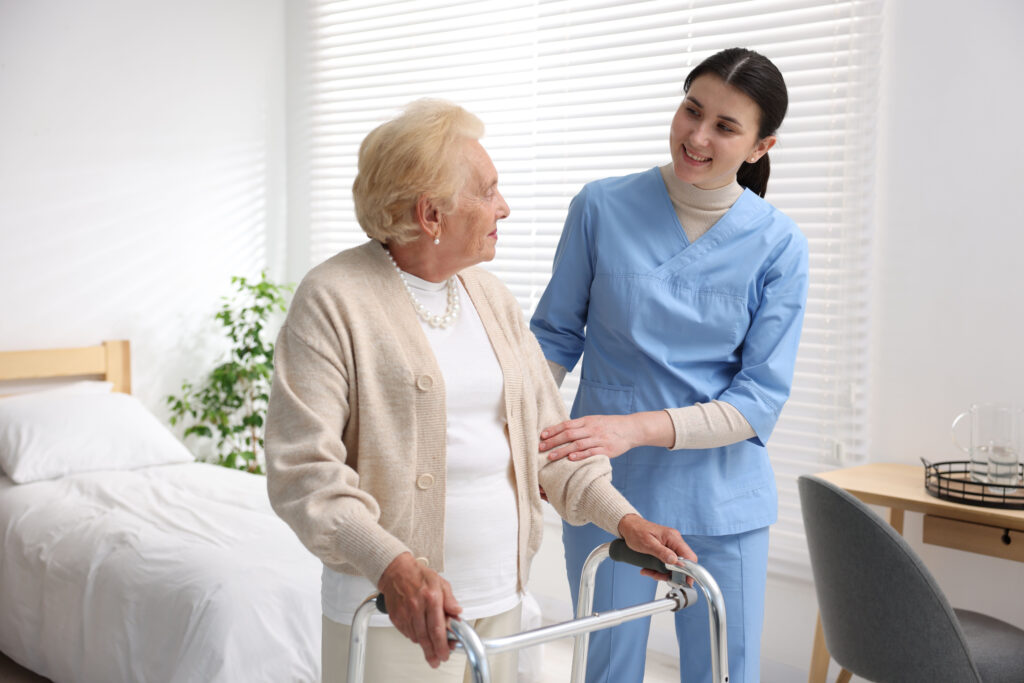Many families today search for reliable and compassionate in-home care in Nebraska that supports aging adults without taking away their freedom. Seniors often prefer to live at home because it offers familiarity, comfort, and dignity. Modern home care services make this possible by providing personalized daily living assistance, mobility support, wellness monitoring, and companionship. This article is structured as an SEO-optimized overview that explains how professional caregivers help seniors stay independent, safe, and engaged in their Nebraska homes.
Families seeking guidance on aging-in-place solutions will find valuable insights into how home care strengthens confidence, enhances quality of life, and supports long-term independence.
The Growing Demand for In-Home Care in Nebraska
Nebraska’s senior population is expanding, and many families are searching for services that balance support with independence. In-home care provides personalized assistance that respects each individual’s capabilities. Instead of a one-size-fits-all approach, caregivers adapt to each senior’s needs, allowing them to remain active and engaged in daily routines.
This rising demand is also driven by the desire for aging in place. Seniors feel more secure in their own homes, surrounded by familiar people, memories, and communities. As a result, in-home care agencies across Nebraska continue to expand programs designed specifically to maintain independence for seniors.
Why Senior Independence Matters for Long-Term Wellness

Independence isn’t just about physical ability. It deeply influences emotional health, confidence, and motivation. When seniors maintain their independence, they often experience:
- Higher self-esteem
- Better mobility
- Reduced risk of depression
- Improved cognitive health
- More meaningful daily routines
Encouraging independence also helps seniors feel purposeful. Tasks like preparing a light meal, choosing their clothing, or enjoying hobbies create a sense of control. In-home caregivers play a key role by offering support only where needed, allowing older adults to continue doing as much as possible on their own.
Daily Living Assistance That Encourages Independence
One of the primary benefits of in-home care in Nebraska is assistance with activities of daily living (ADLs). These tasks often become challenging with age, yet with the right help, seniors can continue performing many of them independently.
Here are common areas where caregivers provide helpful, encouraging support:
Personal Care
Caregivers assist with bathing, dressing, grooming, and mobility while empowering seniors to stay involved in their own routines. Instead of doing everything for the client, caregivers focus on safety and comfort while allowing seniors to remain active participants.
Meal Preparation
Healthy eating supports long-term independence. Caregivers can prepare meals alongside seniors, allowing them to stay engaged in cooking tasks they enjoy. Even simple tasks like stirring, chopping soft foods, or setting the table boost confidence.
Medication Reminders
Proper medication management helps prevent hospital visits and improves overall stability. Caregivers offer reminders while allowing seniors to remain responsible for their own routines whenever possible.
Daily living assistance is most effective when it blends safety and independence instead of limiting the senior’s involvement.
How In-Home Care Supports Mobility and Physical Activity
Mobility challenges are common in aging adults, yet maintaining mobility is essential for independence. In-home caregivers help seniors stay active through:
- Guided walks
- Light stretching
- Support during physical therapy exercises
- Safe transfers and positioning
Caregivers encourage movement while preventing falls and accidents. This combination keeps seniors physically capable and confident in their ability to navigate their homes. Continued movement also supports stronger muscles, better balance, and improved overall wellness.
Companionship Helps Seniors Stay Socially Independent
Social interaction is a cornerstone of independence. Many seniors in Nebraska live alone, which can lead to isolation. In-home care provides meaningful companionship, helping seniors stay socially active and connected to their communities.
Companionship services may include:
- Conversations and emotional support
- Shared hobbies like card games, gardening, or reading
- Accompanying seniors to events, appointments, or family gatherings
This support encourages seniors to stay involved in the activities they enjoy while preventing social withdrawal.
Safety Enhancements That Support Independent Living

A safe environment helps seniors remain independent longer. In-home caregivers monitor safety risks and help make necessary adjustments around the home. Common safety enhancements include:
- Removing clutter to reduce fall risks
- Helping seniors navigate stairs or uneven floors
- Checking that home lighting is bright and accessible
- Identifying hazards in bathrooms and kitchens
Caregivers also provide gentle supervision to prevent accidents without restricting freedom. This balance ensures seniors can continue functioning independently within a safe environment.
How In-Home Care Reduces Family Stress While Supporting Senior Independence
Families often want to support aging loved ones but may feel overwhelmed by the responsibilities. In-home care offers a solution that benefits both seniors and relatives.
Benefits for families include:
- Peace of mind knowing a trained caregiver is present
- More quality time with the senior instead of focusing solely on tasks
- Less burnout for family caregivers
- Guidance from professionals who understand senior needs
By reducing family stress, seniors ultimately receive better support and maintain greater independence.
Customized Care Plans That Promote Individual Independence
Every senior has unique abilities, preferences, and health needs. In-home care agencies in Nebraska create personalized care plans that focus on maintaining independence as much as possible.
Personalized care includes:
- Tailored assistance levels
- Activities that match cognitive and physical abilities
- Flexible schedules to support routines
- Adjustments as needs evolve
A customized plan ensures that care enhances independence instead of limiting it.
The Long-Term Benefits of In-Home Care for Nebraska Seniors
In-home care offers lasting advantages that go beyond daily assistance. Some long-term benefits include:
- Aging in place comfortably
- Lower risk of hospitalizations
- Improved mental and emotional health
- Greater engagement in daily life
- Stronger relationships with caregivers
These advantages help seniors remain active members of their families and communities, reinforcing dignity and independence.
Conclusion
In-home care provides Nebraska seniors with the tools, support, and companionship needed to age confidently at home. Families gain peace of mind, and older adults enjoy the freedom to live life on their own terms. If you want to help your loved one maintain independence with compassionate, personalized support, Aurora Home Care is here to help.
FAQs
- How does in-home care help seniors stay independent?
In-home care provides assistance only where needed, allowing seniors to stay active in daily tasks while receiving support for safety and comfort. - What daily activities can caregivers assist with?
Caregivers can help with bathing, dressing, cooking, medication reminders, mobility, and light housekeeping. - Can in-home care improve a senior’s confidence?
Yes. Encouraging seniors to participate in daily routines helps maintain confidence, physical ability, and emotional well-being. - Is in-home care safer than moving to a facility?
For many seniors, staying at home with proper support can be safer and more comfortable than relocating to a care facility. - How do I know if my loved one needs in-home care?
If your senior family member struggles with daily tasks, mobility, or safety at home, in-home care may be the right solution.


0 Comments